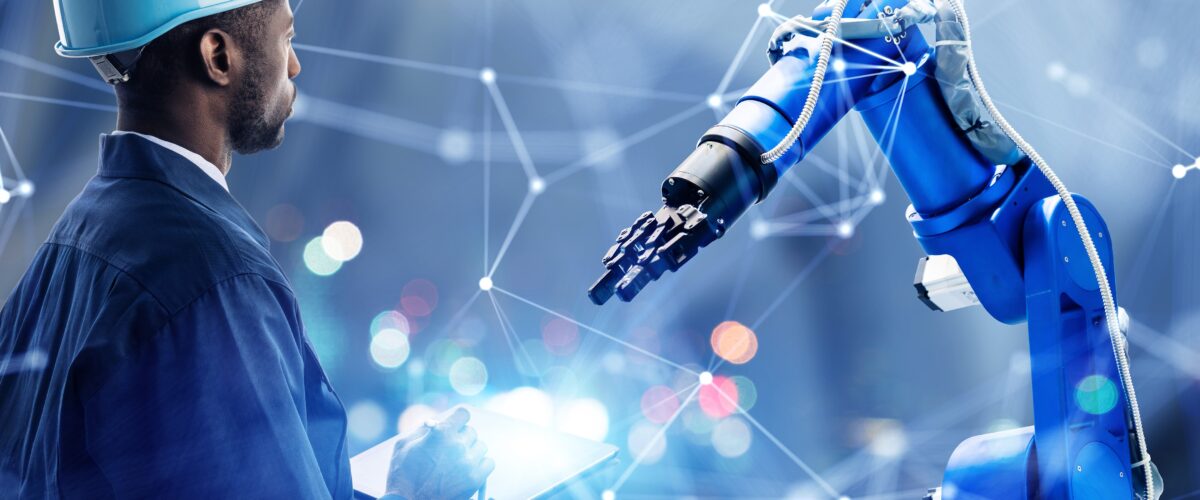
In today’s rapidly evolving digital landscape, software development has become the backbone of innovation and efficiency across industries. The demand for high-quality, reliable, and scalable software applications is greater than ever, pushing developers to explore new ways to streamline their workflows and produce cutting-edge solutions. One of the most promising advancements in this field is AI-driven code generation, which represents a significant leap forward in revolutionizing how software is developed.
AI-driven code generation involves the use of artificial intelligence and machine learning algorithms to automate and optimize various aspects of the software development process. This technology leverages the immense potential of artificial intelligence, particularly Natural Language Processing (NLP) and Deep Learning, to assist developers in writing code more efficiently, accurately, and with increased innovation.
Traditionally, writing code has been a time-consuming and intricate process that requires a deep understanding of programming languages and intricate problem-solving skills. While experienced developers excel at this, AI-driven code generation aims to democratize programming by empowering both novice and expert developers alike.
In this era of Big Data and immense computational power, AI models are trained on vast repositories of code, encompassing open-source projects, libraries, and examples from various domains. This vast corpus of code serves as the foundation for training AI models to recognize patterns, common coding practices, and best coding practices across different programming languages.
The benefits of AI-driven code generation are multifaceted. Firstly, it accelerates the software development lifecycle by automating repetitive tasks, such as generating boilerplate code, reducing the likelihood of bugs and errors, and optimizing overall code quality. This newfound speed and efficiency allow developers to channel their creativity and cognitive energy towards solving complex problems and fostering innovation.
Secondly, AI-driven code generation fosters knowledge-sharing and collaboration within development teams. The AI models can learn from collective coding experiences, and developers can access AI-generated code snippets or suggestions, thus promoting a culture of shared expertise.
Moreover, AI-driven code generation plays a pivotal role in addressing the skills gap in software development. By augmenting developers’ capabilities, AI empowers individuals with limited coding experience to contribute meaningfully to projects, encouraging diversity and inclusivity in the software development community.
Despite its transformative potential, AI-driven code generation also poses several challenges. Concerns regarding security, privacy, and the ethical use of AI-generated code have emerged. Additionally, striking the right balance between AI assistance and preserving developers’ creative freedom remains a subject of ongoing exploration.
This paper delves into the realm of AI-driven code generation, examining its various facets, including underlying technologies, benefits, potential challenges, and real-world applications. By exploring the current state of AI-driven code generation and its future prospects, we aim to shed light on how this cutting-edge technology will continue to shape the future of software development, driving efficiency and innovation across industries.
Conclusion
AI-driven code generation represents a game-changing advancement in the world of software development, offering significant potential for efficiency and innovation. Throughout this exploration of AI’s impact on the coding process, we have seen how this technology can revolutionize the way software is created, optimized, and shared.
The primary advantage of AI-driven code generation lies in its ability to accelerate the development lifecycle. By automating repetitive tasks, suggesting optimized code snippets, and reducing the likelihood of errors, developers can save valuable time and resources. This newfound efficiency empowers them to focus on more complex problem-solving, experiment with new ideas, and foster innovation.
Furthermore, AI-driven code generation fosters collaboration and knowledge-sharing within development teams. By tapping into vast repositories of code, AI models can learn from collective experiences, enabling developers to access valuable insights and best practices. This democratization of knowledge bridges the gap between experienced developers and newcomers, promoting inclusivity and diversity in the field.
Nevertheless, as with any transformative technology, AI-driven code generation presents its own set of challenges. Concerns related to security and privacy must be addressed diligently to ensure the responsible use of AI-generated code. Additionally, developers must strike a balance between relying on AI assistance and preserving their creative freedom, avoiding overreliance on automated solutions.
Looking forward, the future of AI-driven code generation seems promising. Continued research and development will refine AI models, making them even more accurate, efficient, and adaptable to diverse programming languages and contexts. This evolution will lead to better collaboration between human developers and AI systems, culminating in a symbiotic relationship that optimizes code quality and nurtures groundbreaking innovations.
In conclusion, AI-driven code generation is poised to shape the software development landscape profoundly. As this technology matures and becomes more prevalent, it will unlock new frontiers of efficiency and innovation, empowering developers to build smarter, faster, and more sophisticated applications. Embracing AI-driven code generation while navigating its challenges responsibly will undoubtedly lead to a future where software development becomes more inclusive, accessible, and transformative than ever before. By harnessing the potential of AI, we can pave the way for a more dynamic, interconnected, and inventive digital world.

Post a Comment